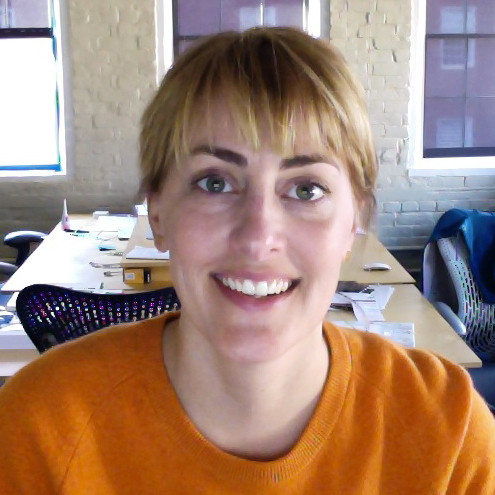
PROVIDENCE – Rhode Island Innovation Fellows Amy Bernhardt and David Dadekian will pursue projects in the textile and food industries respectively, Rhode Island Foundation announced Wednesday.
Bernhardt’s project, Colorfast, will establish a research and manufacturing facility to design and produce digitally printed textiles.
Dadekian’s project, the Eat Drink Rhode Island Central Market, would include a public market, commercial production and processing facilities, and tourism and educational components.
A public announcement is scheduled to take place at 5:30 p.m. at the Roger Williams Park Casino.
Philanthropists Letitia and John Carter established the Innovation Fellowships in 2011, awarding two three-year, $300,000 fellowships for both 2012 and 2013. In this third round, a seven-member panel selected Bernhardt’s and Dadekian’s proposals from a field of 343, focusing on work that is pioneering and reflects leadership, vision, risk-taking, the potential to scale up and have a lasting statewide impact, Neil D. Steinberg, Rhode Island Foundation president and CEO, said.
“Digital inkjet printing of textiles is the new wave of technology in fabric production,” said Bernhardt, of Providence. “A high-end digital fabric printing facility would transform this technological exploration and creative invention into reality by producing quality goods and services that will directly benefit the Rhode Island economy.”
Dadekian, of Coventry, said his project will strengthen the burgeoning food industry in Rhode Island.
“My plan is to create a centralized culinary hub for Rhode Island, a complete business-to-business and business-to-consumer center, as well as being a destination for visitors to Rhode Island,” he said. “This hub would be integral to the way Rhode Islanders eat and create a model for wider emulation in other regions of the country.”
Steinberg said the two fellows and 10 finalists had stellar projects that made decision-making on the panel more difficult this year. But applicants showed creativity and a willingness to put in hard work, he said.
“We looked for these to be actionable,” he said of the winning projects. “They’re [worked on] over three years and some take time to ramp up. The winners and the applicants … have a passion and it’s a positive, exciting, ‘I’m-going-to-do-it-here’ passion. With most of the applicants, there’s a real sense of commitment to the state and optimism.”
Bernhardt and Dadekian thanked the foundation and the Carters for the recognition and support afforded by the fellowships.
In addition to Bernhardt and Dadekian, the panel also recognized 10 finalists for their merit and potential:
- Ken Castellone proposed creating an experiential, after-school STEM Academy and Summer Coding Boot Camp
- Maeve Donohue proposed creating a suite of services connected to a statewide database to allow management of memberships, preferences and privacy with a single login
- Mary Flynn proposed reducing public health care costs by helping low-income RITE Care insurance recipients to improve diets
- John Haley III, Howard Kilguss and Chris Maloney proposed improving Rhode Island’s commercial mussel harvest by increasing the availability of seed stock
- Deborah Perry proposed creating the “Fantastic Girltastic Code Company” to increase the number of women holding college degrees in computer sciences through mentorship and other means
- Leo Pollock and Nat Harris proposed creating The Compost Plant, an urban commercial composting facility designed to divert large volumes of organic waste from the landfill and launch a compost network
- Mike Ryan proposed recruiting a group of tech-savvy students modeled on the Peace Corps to help state and local governments improve their systems and online services for businesses
- Tom Shevlin proposed creating a collaborative mentoring and shop space to cultivate the state’s next generation of small-scale manufacturers
- Barbara Somers, Laura Skrobe and Kathleen Castro proposed exploring the feasibility of rearing blue crabs in fresh water ponds
- Adrian Burke and Wanda Milgus proposed creating an advanced digital textile studio to make digital textile technology accessible to artisans and designers
Chaired by Steinberg, the panel included David M. Dooley, president of the University of Rhode Island; Ann-Marie Harrington, president and founder of Embolden; Charlie Kroll, founder and CEO of Andera; Marie Langlois, retired managing director of Washington Trust Investors and a director of the Rhode Island Foundation; Lisa Utman Randall, executive director of the Jamestown Arts Center; and Don Stanford, chief innovation officer at GTECH.












